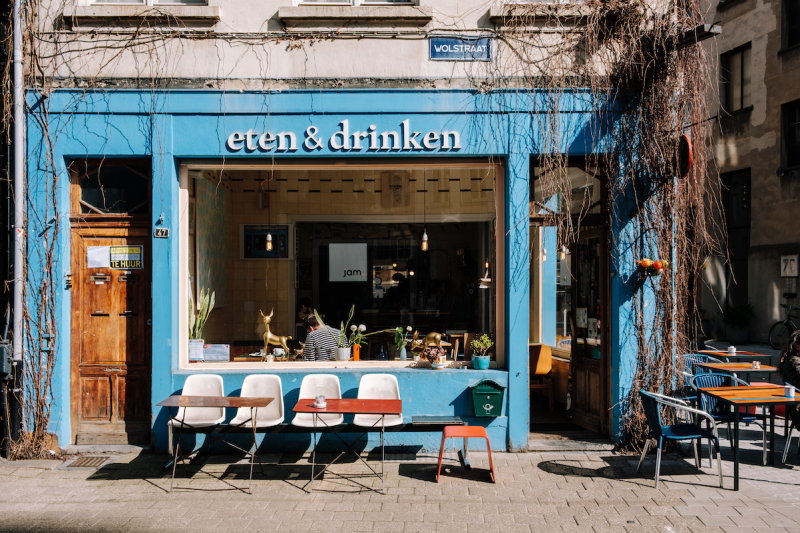The Empathy of Ethnography

I’m sitting outside of a coffee shop. My drink balances on a ledge, overlooking the street, and I am perpendicular to the entrance of the door. The black of my computer screen allows me to see people as they walk in—some in pairs, singles, groups, families—behind me. Across from me are a myriad of people with their eyes glued to their screens—some writing, watching or waiting. In this 20 by 30 square foot patio, there are 11 separate lives that all happen to find themselves near in proximity yet distant in connection. When proximity and connection coincide, it creates something beautiful—human interaction.
These interactions happen hundreds of times a day and only seem overwhelming when we decide to notice them. They only seem significant when they actualize. The man standing at the door may open it for the barista going to disinfect table. In that opening, he might nod or say hello which might lead to a banter that leads to a connection that leads to a lifelong relationship (more or less). On the other hand, the man might allow the door to close in which none of that would have happened.
That duality is what enthralls me. In our everyday, we engage the many things that make us human—empathy, compassion, reciprocity, etc. It may be cheesy to quote the “father of modern anthropology”, Franz Boaz, but I haven’t been able to encapsulate the value of ethnography as well as he has. As he comments, “We have to study man, and we must study what concerns him most intimately, that is, the hold which life has on him. In each culture, the values are slightly different; people aspire after different aims, follow different impulses, yearn after a different form of happiness” (Boas 1992). I, like the 11 others on this patio, find happiness in a cup of coffee (maybe tea or matcha if we’re getting technical).
We are united by a mess of creams and sugars and bound by the sounds of coffee beans grinding or espresso spewing. In this one space, we are engaging in a cultural ritual that symbolizes something different to each patron. Ethnography aims to assign meaning to these symbols, to understand.
Through participant observation, we navigate symbols with only the voice of those who find meaning in it as our guide. This allows a sort of nativity, humility, that is ever challenging and rewarding all at once. In listening, watching and absorbing, we are subjected to fields of answers and more unturned questions that allow us to explore the very depths of our humanity. Then, and only then, can we truly understand the value of empathy.
I am a rising junior at the University of Denver studying Anthropology, Spanish and leadership, and pursing a graduate degree in International Studies. I am an advocate for migrant rights, feminism and equality. I am a daughter of two Greek parents and a sister to two older brothers. I am a best friend and a roommate of five strong women. I am an avid runner, skier, hiker and camper. In all of these capacities, I am only parts of myself. I engage different symbols, rituals and practices in each different habitat I call home. This is what makes human life so amazing and so worthy of study.
How can I, one person, be a part of so many things?
How can I, one person, be only a single part of these things?
I feel it is our job, our moral obligation as people, to become parts of as many things, as many people’s lives as we possibly can. We should feel big and small all at once, unique and ordinary, important and irrelevant. In engaging in such juxtapositions, we surrender preconceptions, judgments and presumptions and what we’re left with is vulnerability. As such, we are able to examine those around us and see the parts of ourselves that we love or want to change.
To me, ethnography is the purest exercising of this sort of dynamic mirroring. As anthropologists, sociologists, psychologists and artists alike, we look onto others as inspirations or muses to create a sort of shared meaning. Only in engaging with others, do we have the chance of understanding ourselves and when we understand ourselves, we can understand each other. This symbiotic understanding sounds a little something like empathy…


